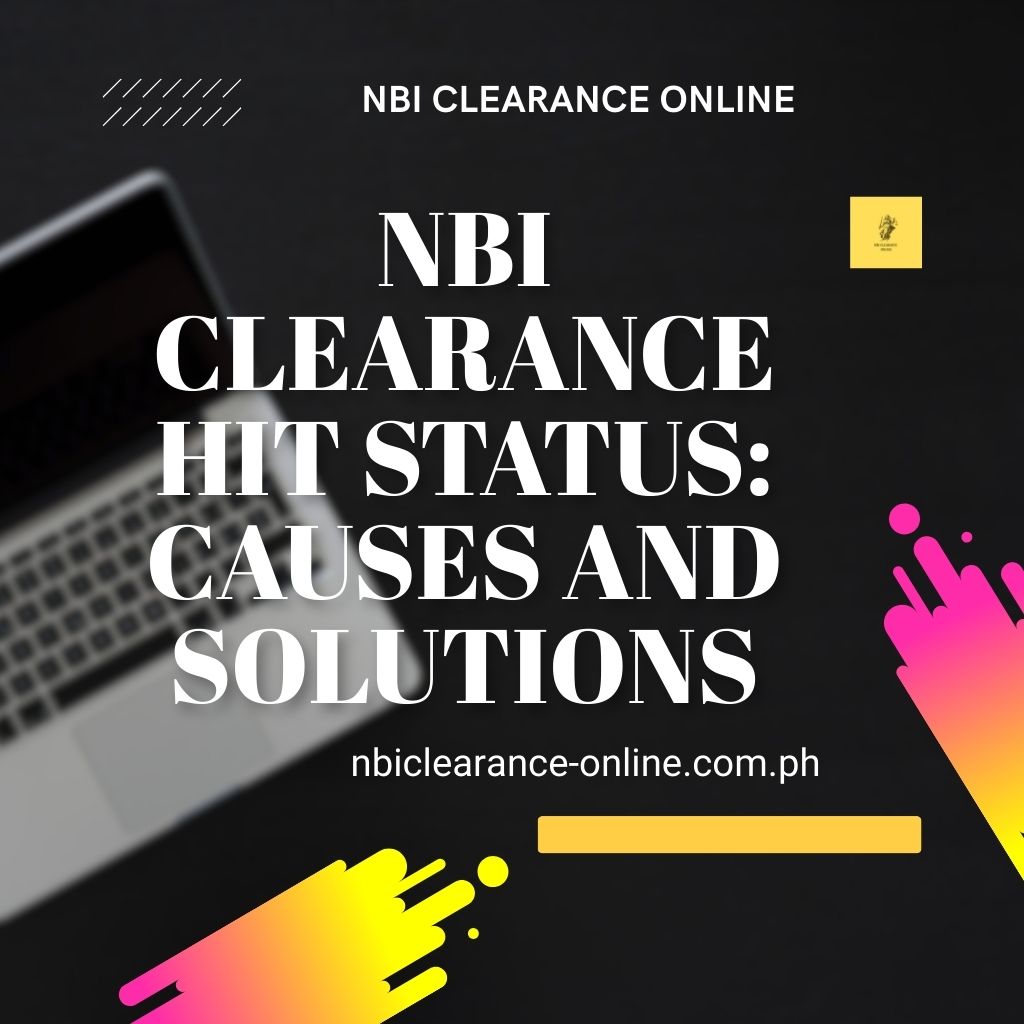Understanding NBI Clearance HIT Status: Causes and Solutions
Introduction
If you’ve ever applied for an NBI clearance in the Philippines, you may have encountered the term “NBI clearance HIT status.” It can be confusing and concerning, especially if you’re unsure what it means or how it affects your application. In this article, we will break down the NBI clearance HIT status, why it happens, and what to do if you receive a HIT during your application process.
What is NBI Clearance HIT Status?
An NBI clearance HIT status indicates that the system found a match or a “hit” in its database when cross-checking your personal information. This match may relate to someone with a similar name or a record of legal concerns that requires further verification by the National Bureau of Investigation (NBI).
Essentially, an NBI HIT means there is a need to investigate the details more thoroughly before clearing the applicant.
The HIT status does not automatically imply guilt or an issue on your part. Rather, it is a precaution taken by the NBI to ensure that any possible identity matches are reviewed to avoid errors or potential risks.
Reasons Why You Get an NBI Clearance HIT Status
- Name Similarity with Another Individual
The most common reason for getting an NBI clearance HIT status is that your name is similar to someone else in the NBI’s database. This can occur if someone else with your name has a record or a pending case, resulting in a HIT. This issue is quite common, especially if you have a widely used name in the Philippines. - Pending Cases or Warrants
If you have a pending criminal case or legal warrant, you will receive an NBI clearance HIT status. The NBI requires further investigation to determine whether the applicant should be issued a clearance or if further action is needed. - Previous Criminal Records
Individuals with past criminal records, even those who have served their sentences, may receive an NBI clearance HIT status as their information is flagged for verification. It is standard practice for the NBI to ensure that there is full transparency regarding an applicant’s history. - Typographical Errors in Previous Records
Sometimes, a simple typographical error in previously filed records could also trigger an NBI clearance HIT status. Any inconsistency in your data, such as your name or birth date, can cause a discrepancy during the system check.
What to Do If You Get an NBI Clearance HIT Status?
Receiving an NBI clearance HIT status can be frustrating, but it is essential to stay calm and follow the necessary procedures. Here’s what you can do:
- Wait for the NBI Verification Process
Typically, if you receive a HIT, the NBI will advise you to wait a few more days—usually 5 to 10 working days. During this period, NBI personnel will manually verify the details in the database to determine if there is indeed an issue or if it is merely a name similarity. - Appear in Person If Required
In some cases, you might be asked to appear in person at the NBI office to clarify the situation. You may need to provide additional identification or documentation to prove that you are not the person flagged in their database. - Prepare Relevant Documents
To expedite the clearance process, prepare documents that can establish your identity. This may include IDs, birth certificates, or court documents if you have a previous case that has already been settled.
How Long Does the HIT Status Verification Take?
The NBI clearance HIT status can delay the issuance of your clearance by several days. Typically, the waiting time is around 5 to 10 business days, depending on the nature of the HIT. If it is due to name similarity, it often resolves faster.
However, if there is a more complex concern. Such as pending legal matters, it may take longer for the NBI to conclude its investigation.
How to Avoid Getting an NBI Clearance HIT Status?
While you cannot entirely prevent an NBI clearance HIT status. Especially if it is due to name similarity, there are a few things you can do to minimize your chances:
- Provide Accurate and Complete Information
Ensure that you provide accurate and complete personal information during your application process. Any inconsistency can lead to delays. - Use Middle Names Fully
If possible, use your full middle name rather than just an initial. This might reduce the likelihood of your name matching someone else’s, thereby reducing the risk of a HIT. - Check for Pending Cases
If you know you have a pending case, it’s best to address it legally before applying for an NBI clearance. By resolving legal matters early, you reduce the chance of an NBI clearance HIT status.
Conclusion
An NBI clearance HIT status may seem daunting. But it is simply part of the NBI’s standard procedure to ensure the accuracy and integrity of their records. Receiving a HIT does not mean you are guilty of any crime it often means that the NBI needs to verify that you are not someone else in their system with a similar name or record.
If you encounter an NBI clearance HIT status, follow the procedures, provide the necessary documents, and remain patient during the verification process. Remember that the NBI aims to protect both applicants and the community by thoroughly checking all submitted information. Understanding what a HIT status means and how to handle it allows you to navigate the process more confidently. And get your clearance without unnecessary stress.







